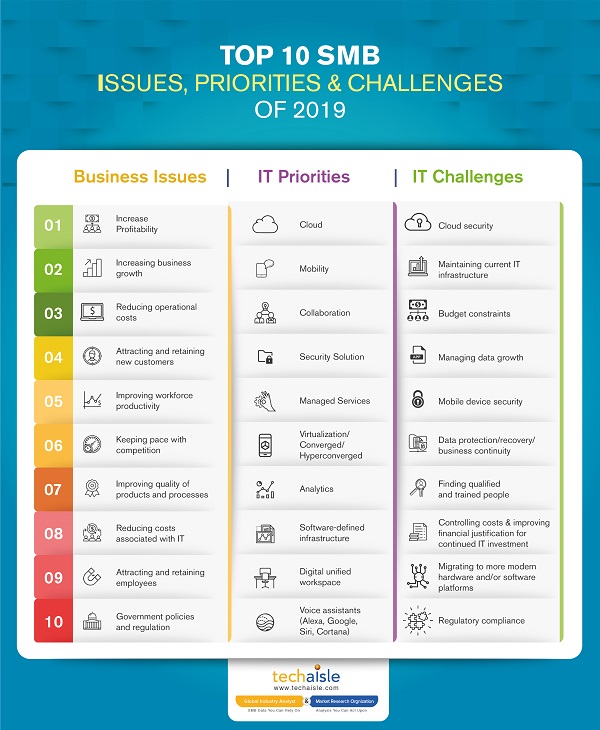Techaisle’s latest US, Asia/Pacific, Europe and Latin America SMB and Midmarket cloud adoption trends survey research shows that the external spend on cloud will likely reach US$115B in 2019. The survey data also reveals that the total spend will be higher within small businesses (1-99 employees) than midmarket firms (100-999 employees) but average spend on cloud by midmarket firms will be approximately 30X – 35X of small businesses. Although cloud adoption is accelerating within SMBs and midmarket firms, the cloud spend is still only a fraction of the global SMB and midmarket IT spend (excluding telecom services) of US$662B in 2019.
Techaisle had forecast in 2016 that that the near-term trends will include ‘multiple clouds’ with more sophisticated automation. The 2016 data showed that over 70% of small business users and just over half of midmarket firms were working with a single type of cloud platform (public, private or hybrid). Techaisle believed that over time, most midmarket firms and a more substantial proportion of the small business community would opt to use multiple different cloud platforms, deploying workloads on the infrastructure that is best suited or most cost effective for the application’s needs. This would in turn require users to connect clouds – to each other, and to on-premise equipment – to ensure that management requirements associated with these diffused IT delivery platforms did not overwhelm the IT staff. Techaisle expected to see increased use of orchestration and advanced security technologies and other sophisticated tools to help the IT generalists who are common within SMB IT units to keep pace with increases in IT management complexity.
The forecast on the use of multiple clouds and use of orchestration and automation technologies is coming true. For example, in 2019, in the US, 52% of midmarket firms are currently using multiple clouds and 38% are using multiple public cloud providers. Even the percent of midmarket firms using hybrid clouds has increased to 45% with 18% of cloud workloads on hybrid platforms. Survey data shows that other regions, especially, Europe and Asia/Pacific, although behind the US are catching up.













